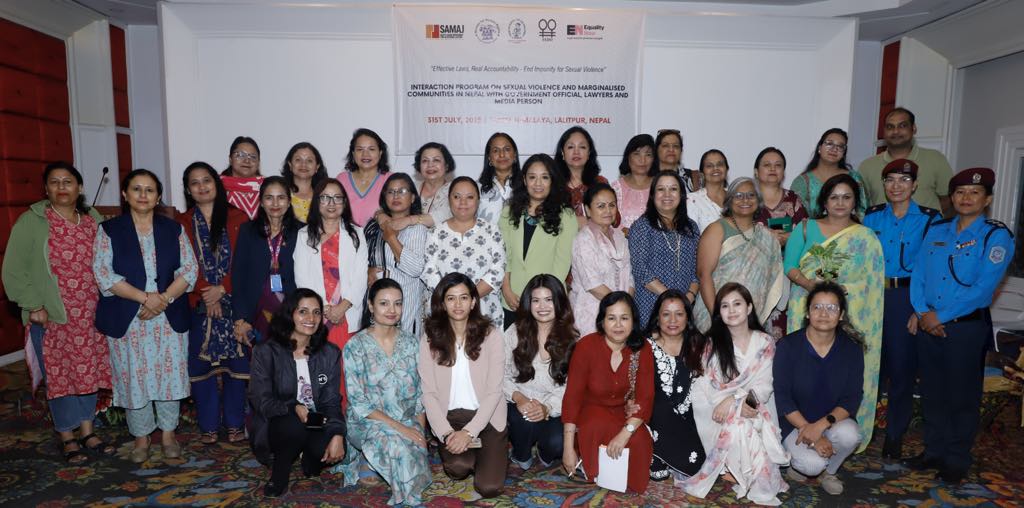

KATHMANDU: Sexual violence remains a pervasive problem across Nepal, with women and girls from marginalized communities—such as Dalit, Indigenous, Madhesi, Muslim, and those with disabilities—facing heightened risks and significant barriers to justice.
Recognizing the urgent need for change, a national consultation was held in Kathmandu by SAMAJ, Equality Now, WHR, FEDO Nepal, and FWLD.
Over 30 participants, including rights advocates, policymakers, and community representatives, gathered to discuss intersectional challenges and develop inclusive solutions.
Despite some legal progress, such as the extended time limit for reporting rape, systemic issues persist. Survivors continue to face stigma, impunity, and weak law enforcement. Police data shows reported sexual violence cases increased to 2,507 in 2023–2024, up from 2,380 in 2021–2022.
Dalit and Indigenous women in particular struggle to access justice, often due to discrimination and poor institutional support. Women and girls with disabilities face additional challenges like communication barriers, lack of accessible facilities, and exclusion from legal processes.
Participants also raised concerns over victim blaming, breaches of confidentiality, and a widespread culture of silence. Many survivors are unaware of legal options, especially in marginalised communities.
Upasana Rana of WHR Nepal stressed the need for stronger legal aid, disaggregated data, and the active inclusion of excluded communities in policymaking.
The consultation called for survivor-focused reforms including disability-inclusive infrastructure, increased female police representation, and rights-based training for duty bearers.
Julie Thekkudan of Equality Now emphasized that until Nepal addresses the intersecting issues of caste, ethnicity, gender, and disability, justice will remain out of reach for many.
The event concluded with a united demand for dignity, accountability, and equal access to justice for all survivors.